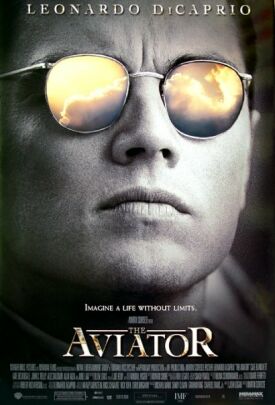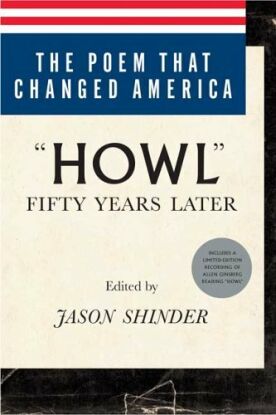Midsize Man
From The American SpectatorTo me, the most interesting thing about the election just past was the debut upon the political stage of a new and powerful electoral interest that, although it has been around for a long time, has suddenly appeared in a new and more potent form — no longer just a fringe group or a makeweight in the electoral calculus as it has been up until now. This is what we might call the Fahrenheit 9/11 tendency or, as I have written about it elsewhere, the Aspirational Cognitive Élite. These are the smart people and would-be smart people who look down on Bush voters as stupid and unenlightened mainly because doing so gives them an opportunity of demonstrating how intelligent and enlightened they themselves were. Among the large and ever-increasing numbers of half-educated and intellectually insecure college graduates, it wasn’t so much a case of smart people voting Democratic, as it was of voting Democratic to make yourself seem smart.
The movies have always played a similar role in providing a short-cut to braininess, or at least a reputation for braininess. Like Classics Illustrated comic books, they provide a simpler, racier, more easily digested way into great literary works or historical personages and periods for those who have never got round to reading them, or about them, but who know enough to know their importance in marking one off as belonging to the élite. Once you would have had to know more of such things than you could learn from the movies, but now, as real education has become rarer, knowledge of the movies is on the point of being enough in itself to qualify you as an educated person. That is one reason why we have recently seen an explosion of what A.O. Scott of the New York Times calls “midsize movies” — which developed out of the art house flick of yesteryear into the increasingly popular “indies” of the last decade or so and on into the mainstream by way of “Masterpiece Theatre” and Merchant-Ivory.
In other words, most of the midsize movies are what in a literary context would be described as “middlebrow” and, like John Kerry, they flatter their audience into supporting them because they are supposed to be more intelligent than other movies — or candidates. And in both cases, reputation is everything. Not intelligence itself but the things associated with it in the popular mind are what is required. Miramax, owned by Disney as I write but soon to spread its wings and fly on its own, is the most famous label associated with these pictures, but all the major studios now have subsidiaries devoted to them. Sony Pictures Classics and Paramount Classics, like ThinkFilm and Focus Features, all advertise an appeal to intelligence or faux literary cachet in their very names. But all of them are aimed at an audience of the intellectually upwardly mobile. Scott quotes Mark Urman of Think Film as saying of the audience his company among others seeks to exploit that he feels “concern” because “they feel they have satisfied their quotient for alternatives with something that is readily available and omnipresent and advertised — they don’t have to pick up a magazine, don’t have to work, don’t have to read much. The film has big stars. They see it and say, I’m smart; they congratulate themselves, and that keeps them from seeing the really challenging film.”
But of course they’re not interested in “the really challenging film.” If they were they would challenge themselves with books or magazines as well. The whole point of such movies is to relieve the would-be intellectual from the necessity of making any real intellectual effort. It was just this tendency to which it was the genius of Michael Moore to appeal in Fahrenheit 9/11. In that film, complex political, military and diplomatic realities were reduced to a lurid psycho-drama in which a bumbling idiot of a president who was in equal parts stupid and corrupt and was seen to be so utterly clueless that the viewer, however little he might know of geopolitics himself, could take comfort in the knowledge that he was much smarter and more knowledgeable than the leader of the Western world. Moore recognized that movie-goers, like others of the Aspirational Cognitive Élite, have learned from mainstream journalism how to patronize the big if not great men of whom they would once have expected to be in awe.
It is an attitude which fits in well with the celebrity culture of Hollywood, which is now the culture of everyone, like it or not, who wants to take any part in the national conversation. Among the things it teaches is that history must be understood in personal terms, and that we must always look past the public figure for the private person within.Obviously, the more screwed up this inner man is, or can be represented as being, the better it is for the celebrity culture, which thrives on the kind of voyeurism we see in varying degrees in all the recent spate of big biopics — The Aviator, Kinsey, Ray, The Motorcycle Diaries, Alexander even The Assassination of Richard Nixon if you allow that Sean Penn’s would-be assassin also counts as a celebrity. In fact, as Albert Borowitz points out in his fascinating book Terrorism for Self-Glorification: The Herostratos Syndrome (Kent State University Press), it was precisely in order to achieve celebrity status that Mr Penn’s real life prototype undertook his ill-fated attempt on the President’s life in 1974.
At any rate, he was as screwed up as we love our celebrities to be. Likewise, Alexander was gay, Che was asthmatic (as well, of course, as saintly), Ray Charles was a drug-addict, Kinsey was kinky — not that there’s anything wrong with that — and Howard Hughes was, well, nuts. That makes him perhaps the best subject of all for the intellectual pretension of the new midsize movie, which The Aviator essentially is, even though it cost Miramax a decidedly outsize $112 million to make it. That’s a lot of money to invest in an arty director like Martin Scorsese, but Harvey and Bob Weinstein must have taken heart from the fact that Fahrenheit 9/11 made well over $100 million, unheard of numbers for a documentary. Perhaps they even looked at the increase in the numbers of would-be intellectuals voting for Democrats in recent years and reflected that the time was right for someone like Scorsese to be supplying them with what they imagine to be intellectual movies.
If The Aviator was not made with some such idea as this in mind it ought to have been, for it is the perfect prototype of the midsize movie, the movie designed to make people think that they are learning — and to congratulate themselves for learning — about an important chapter of American history when in fact all they’re getting is their grandparents’ celebrity gossip. The film is, indeed, a veritable paean to celebrity. Howard Hughes (Leonardo Di Caprio) clearly made some impressive contributions to aviation in the 1930s and 1940s, but no one supposes that a mere engineer would have made a subject for a Scorsese biopic without the Hollywood mistresses, including Katherine Hepburn (Cate Blanchette) and Ava Gardner (Kate Beckinsale), and his other movie connections which made him as much a subject of the gossip sheets in his day as Brad and Jen and J-Lo are today.
And what takes Hughes beyond the realm of mere celebrity and into that of blockbuster biopic for the Aspirational Cognitive Élite is the mental illness which blighted his later years as a reclusive billionaire, holed up in various hotel rooms where he tried to protect himself from germs, of which he had a pathological dread. It is this which allows us to patronize and feel sorry for him as the celebrity culture demands. In fact, Scorsese’s film shows us that lunacy is the perfection of that culture in the same way that it is the perfection of the blue-state political tendency. In both cases the point is to allow those who live in the shadow of the great public figures of their time to turn the tables and regard themselves as superior to them at very little cost in terms either of either learning or accomplishment or even sanity. We may not know much anymore, but we know how to make of what we do know a proclamation of social and political allegiance that must be taken seriously in the future.
Discover more from James Bowman
Subscribe to get the latest posts to your email.







